Skin & Hair
Eczema, Atopic Dermatitis & Topical Steroid Withdrawal Case Studies & Treatment (Part 2)
David Heron, L.Ac.
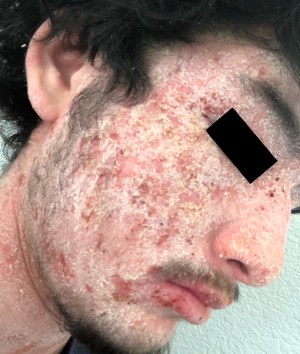
This article is Part 2 in the discussion of topical steroid withdrawal, eczema, and atopic dermatitis. David Heron shows the progression of an 18-year-old man who presented with skin rashes, cracking and peeling skin, hyperpigmentation and more. Photos and discussion follow the patient's improvements, adjustments made to herbal formulas, and includes a check-in with the patient 1 year after stopping treatment.
Read MoreEczema, Atopic Dermatitis & Topical Steroid Withdrawal (Part 1)
David Heron, L.Ac.
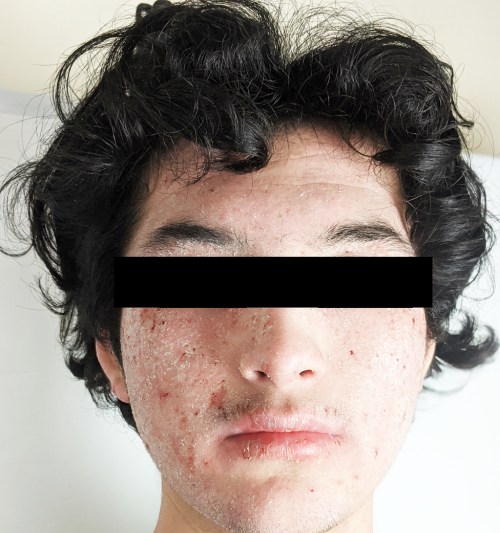
Eczema is a broad term used to describe numerous related but different conditions involving redness, inflammation, itching of the skin, possibly scaling and occasionally the presence of vesicles. Each type of eczema has different causes, symptoms, and treatments. Dermatitis is another term that is used interchangeably with eczema for conditions involving skin inflammation and redness. Despite similarities in meaning, certain diseases are only used with either eczema or dermatitis in their title. This article provides the background of the disease and will be followed by Part 2 discussing case studies and herbal treatments.
Read MoreSkin Formulas Comparison
Yvonne Lau, Mayway President
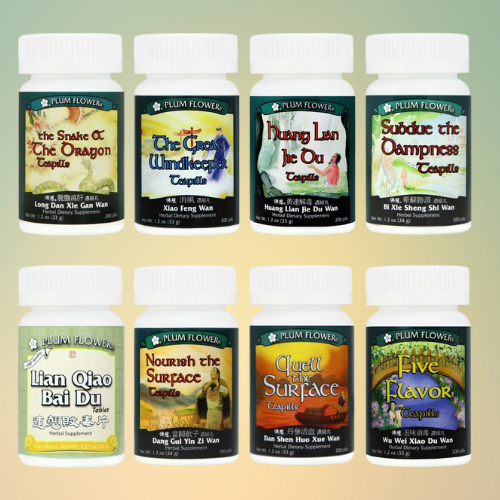
This easy chart shows 10 skin formulas and how to use them including pin yin name, alternate name, functions, indications, typical tongue and pulse, and the ingredients so you can select the best formulas for your patients with ease!
Read MoreHair Loss and Traditional Chinese Medicine
Dr. Shaohan “Eddie” Chui

Throughout all cultures, abundant hair has been seen as a sign of radiant health, as well as fertility and virility. This is also true in traditional Chinese medicine (TCM), as the quantity and quality of hair is understood to reflect the state of the Zang Fu organs and physical condition. Read on to learn the connection between hair health, the 5 internal organs, and other factors contributing to hair condition.
Read MoreQi Bao Mei Ran Dan / Seven Treasures for Hair
Janet L. Borges, MSTCM, Dipl. AC & CH (NCCAOM), L.Ac.
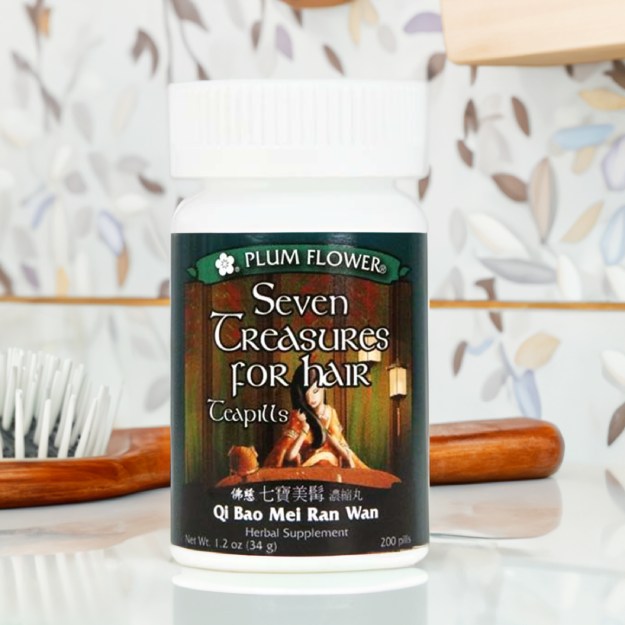
Qi Bao Mei Ran Dan 七寶美髯丹, also known as Seven Treasures for Hair, tonifies both Kidney Yin and Kidney Yang, replenishes Jing, tonifies Blood, strengthens tendons and bones, and benefits vitality. Read more in this deep dive article all about this popular formula for beautiful hair!
Read MoreHives and Children
Raven Lang, L.Ac., O.M.D.
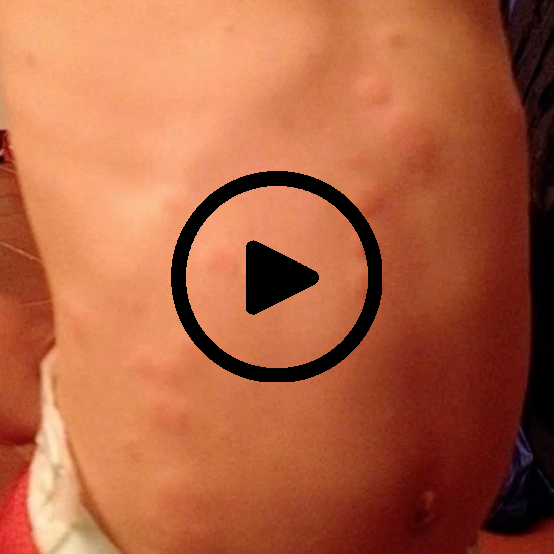
In this video clip from the Mayway course "Pediatrics and Shonishin," Raven Lang, L.Ac., O.M.D. discusses TCM treatments for hives in children.
Read MorePurple Patch Wind, Zi Dian Feng: Lichen Planus Case Study
David Heron, L.Ac.
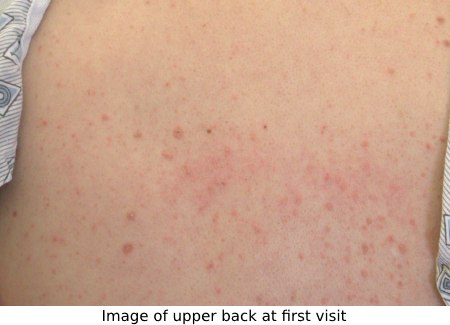
One percent of the world suffers from a skin disease that has been recognized and treated by Chinese medicine (CM) for roughly 1000 Years. These patients lose their sleep and ability to concentrate on daily activities due to persistent, intense itching. Lichen planus, known in Chinese medicine as Zi Dian Feng (紫癫风), which means 'purple patch wind,’ has been recognized, categorized, and treated by Chinese medicine since the Song Dynasty. This case study highlights the use of herbal medicine to treat Lichen planus, documenting the progression of improvement over several months.
Read MoreItchy Skin Recipes
Yvonne Lau, Mayway President
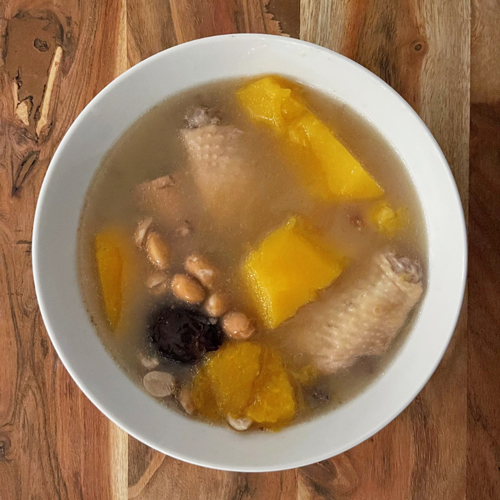
Blooming flowers, green leafy trees, warmer weather, feelings of renewal and growth, and possibly...... dry, itchy, lackluster skin. The effects of cold and windy winter months followed by drier springtime weather can make our skin more vulnerable to peeling, itching and dryness. These 2 recipes will help battle dryness with delicious herb-infused food!
Read MoreCongee Recipe for Beautiful Skin
Yvonne Lau, Mayway President
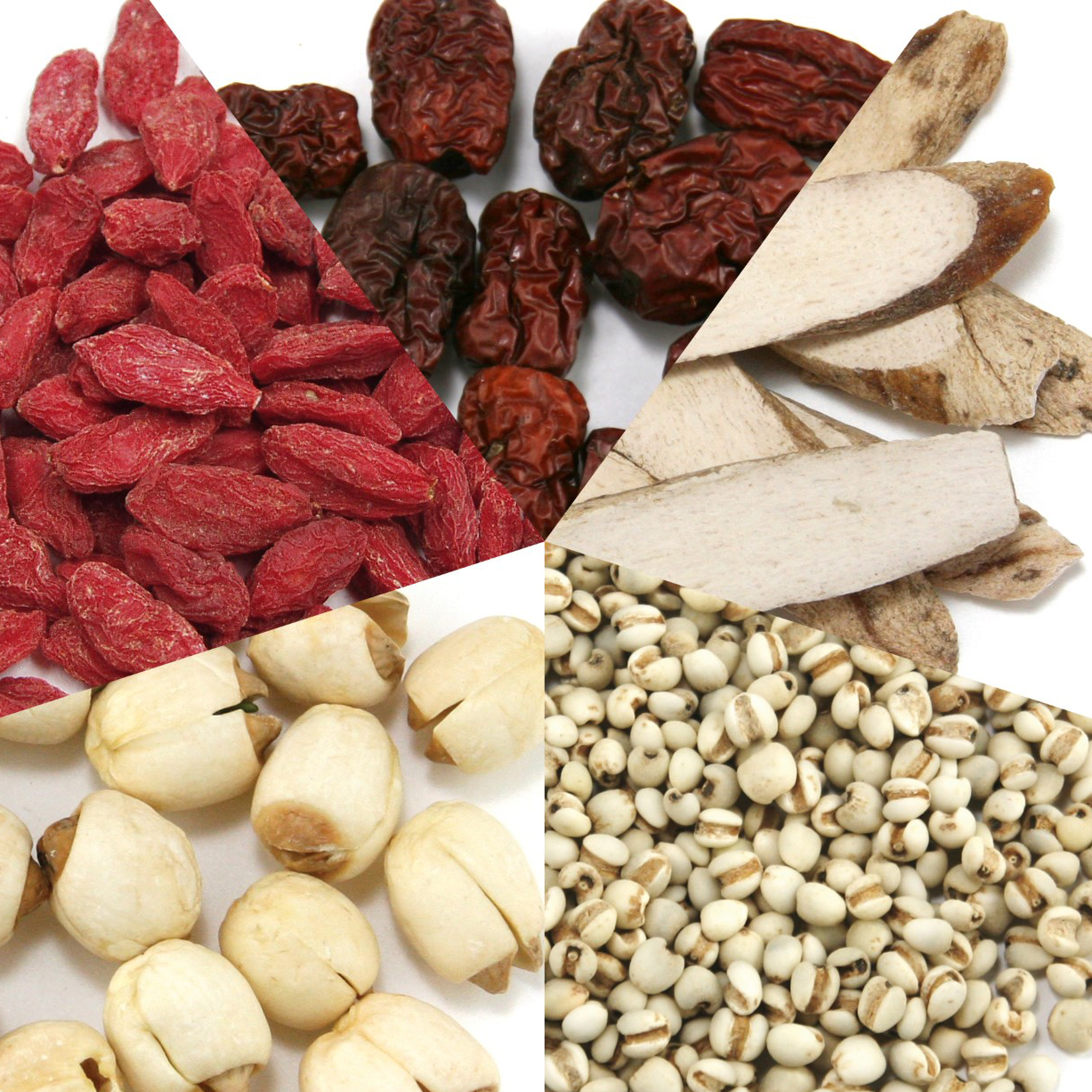
Congee is a nourishing and comforting porridge, regarded to be particularly beneficial for its recuperative properties, often enhanced with herbs for specific functions that are added to the porridge while cooking. Rice is considered a Qi and Yang tonic. This particular recipe nourishes the skin by tonifying the Blood, preserving Yin fluids and helping to heal skin that has been damaged from UV exposure.
Read MorePurple Cloud Salve
Skye Sturgeon, DAOM, Quality Assurance Manager, Mayway

Have you ever wanted to make your own therapeutic ointments from Chinese herbs? Skye Sturgeon leads you through easy and straightforward, step by step instructions that teach you how to make Zi Yun Gao, a famous, over 350-year-old Chinese herb formula that’s applicable for a variety of skin conditions.
Read MoreCase Study: Treatment for “Fen Ci” (粉刺) with TCM
Juliette Aiyana, L.Ac. Herbalist

Chinese herbal medicine can be very helpful to control one of the most common skin conditions in the world, known in traditional Chinese medicine as Fen Ci (粉刺) or “white thorns”, which can have a variety of etiologies. In this article, Juliette presents a case of adult acne, as diagnosed by her dermatologist, in an American 24-year-old cis female of Chinese heritage.
Read MoreMargarite Acne Pills
Mark Frost, MSTCM, L.Ac.
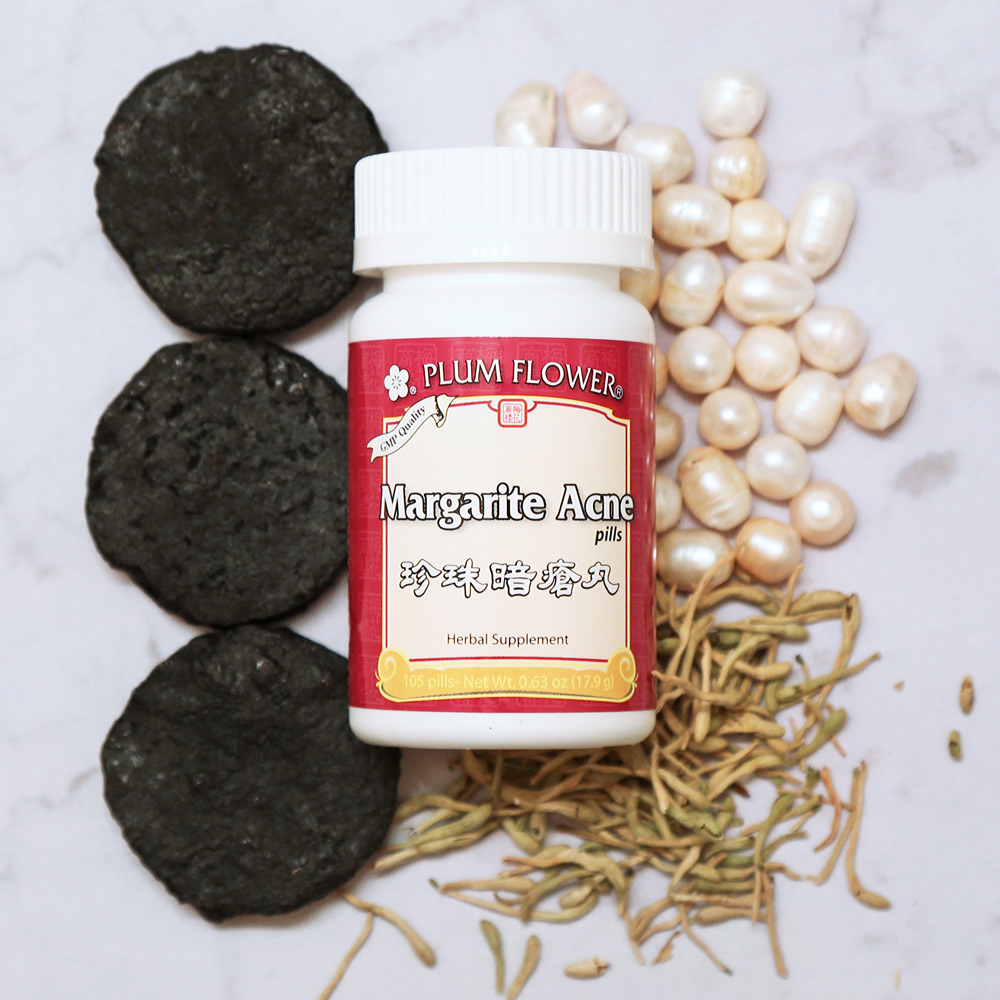
Is Margarite Acne Pills right for my patient? In this article, you will learn about the formula's treatment principles, in-depth information on the herbs used, and formula pairings to help you best prescribe for your patient's Fen Ci issues.
Read MoreFacial Acupuncture in a time of Masks
Michelle Gellis AP, LAc, MAc DiplAc
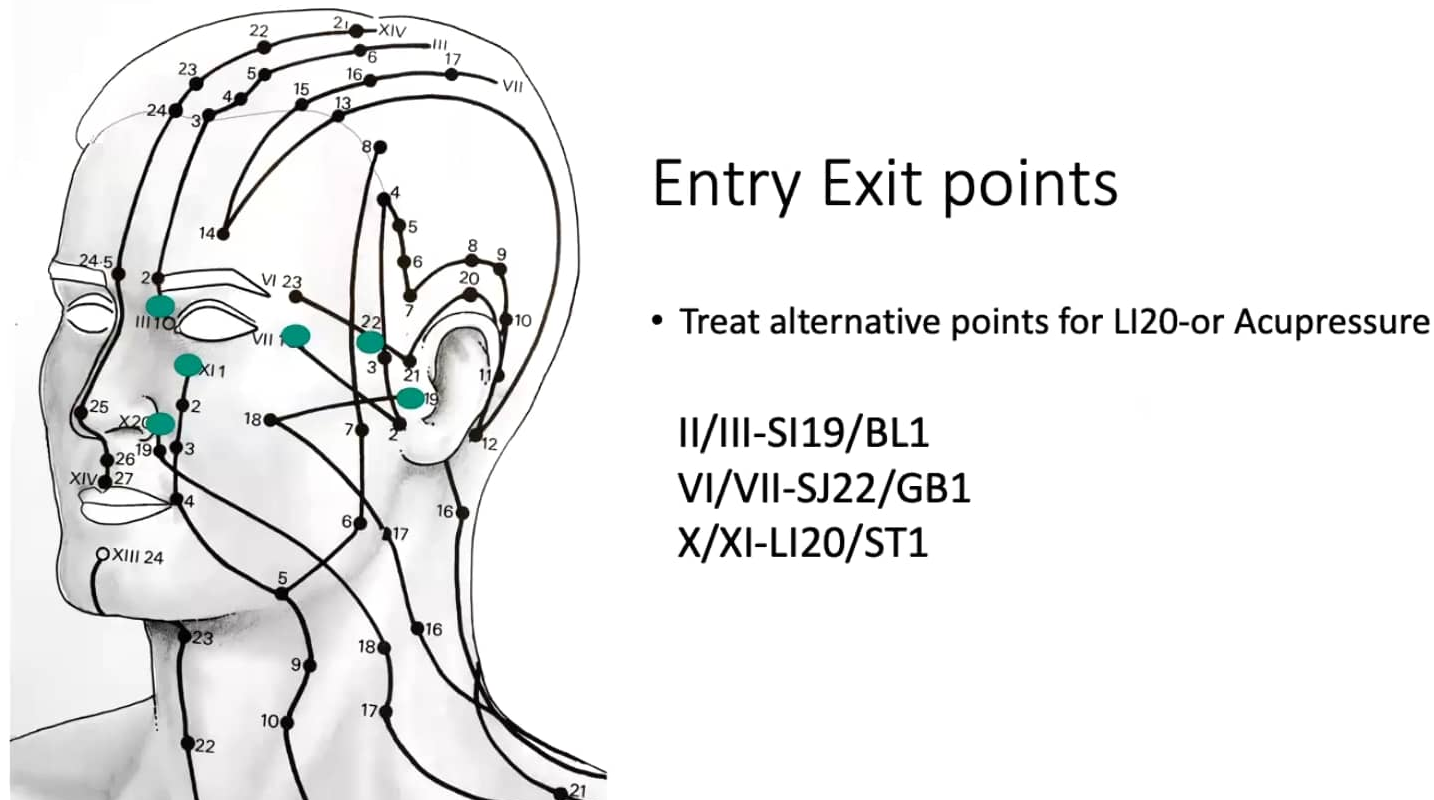
Acupuncturist Michelle Gellis discusses how to modify your facial acupuncture protocol during the pandemic to safely continue your treatments, including modification of masks and your office environment. Thank you to FSOMA for allowing us to use a portion of this webinar recording.
Read MoreDifferential Diagnosis of Acne in Chinese Medicine
Doctor Yu Feng Yau of Hong Kong
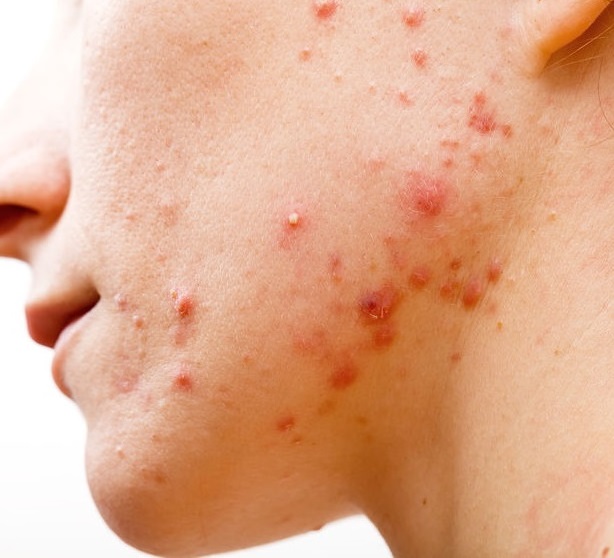
Taking into account the symptoms and characteristics of how the acne presents is vital to diagnosis. If pimples are primarily red, swollen, hot, painful, then it indicates true heat. If redness, swelling, heat and pain are less pronounced, then it is likely due to deficiency heat. Pronounced itchiness is likely due to wind, and pus is usually due to dampness. If pimples expel yellow pus, then it indicates damp-heat. If fresh blood comes out after a pimple bursts, it indicates heat in blood, which is forcing the blood out erratically. If pimples congeal and harden, particularly if they do not resolve for long periods of time, we must consider blocked Qi and stagnant Blood. However, we always need to consider the entire patient presentation, not just these symptoms.
Read More